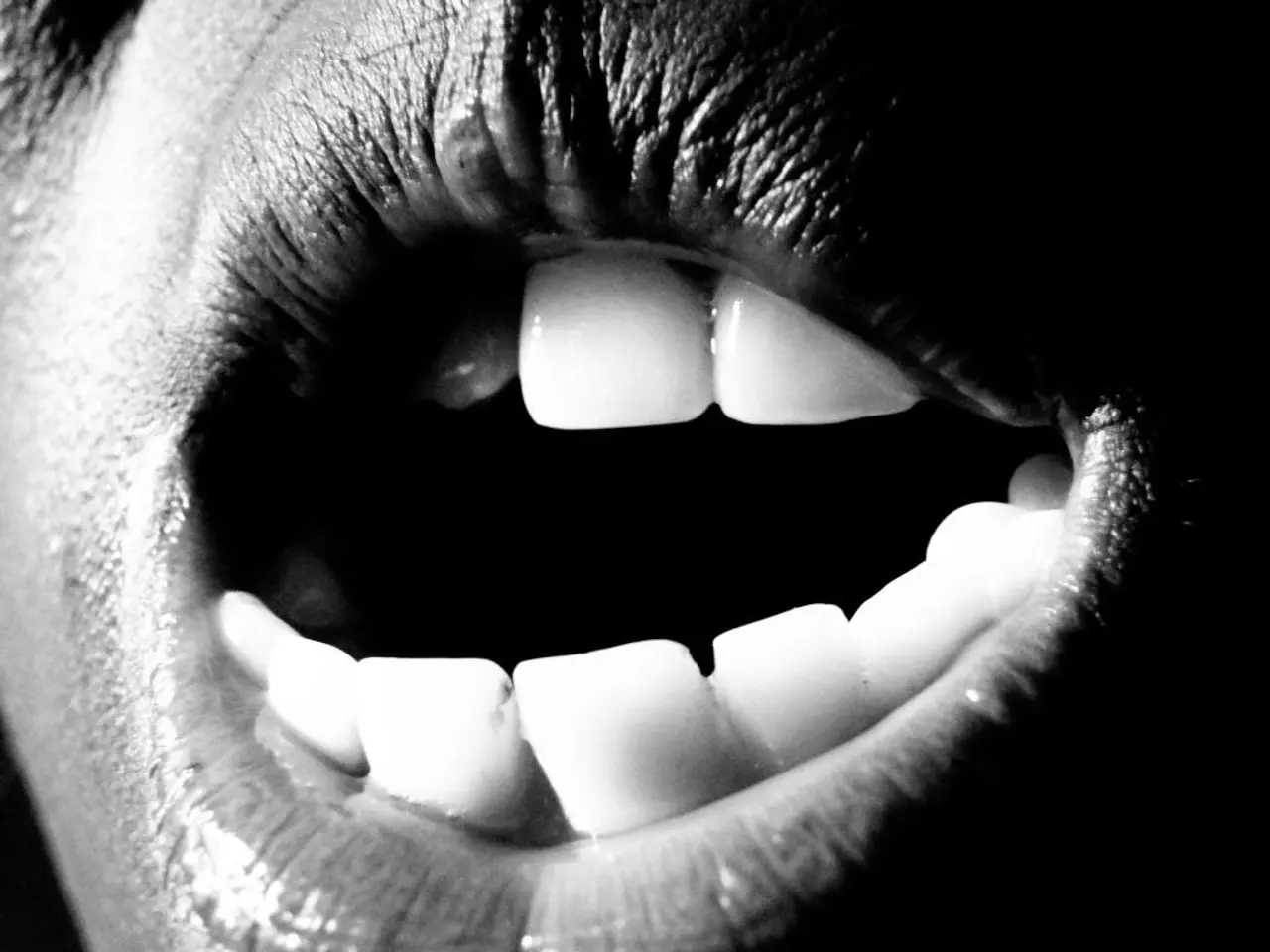Examining the Use of a Dental Mouthguard for Alleviating Jaw Ache?
In the world of dental health, understanding the importance of addressing bruxism (teeth clenching and grinding) and TMJ (temporomandibular joint) disorders is crucial. When it comes to finding the right solution for these issues, dental mouthguards, also known as splints, oral appliances, or night guards, can be a game-changer.
**1. Types of Mouthguards**
When considering a dental mouthguard, the type you choose plays a significant role. Custom-made dental guards, crafted by dentists to fit the shape of your teeth and jaw, offer the most effective protection for long-term use, particularly for severe or complex cases of bruxism and TMJ symptoms[1][3]. Boil-and-bite guards, molded at home using hot water for a semi-custom fit, provide short-term relief but are less precise than custom guards[1]. Stock guards, ready-made and inexpensive, are best for temporary use only[1].
**2. Material and Thickness**
The material and thickness of your mouthguard also matter. Hard acrylic guards, known for their durability and rigidity, are ideal for severe bruxism and TMJ as they provide maximum protection and are easy to clean[3][5]. Softer guards, made of rubber-like materials, offer comfort but wear out faster and are suitable for light to moderate grinding[5].
The thickness of the guard also affects its performance. Thinner guards provide comfort and ease of use for light grinding, while thicker guards deliver stronger protection and durability for moderate to heavy grinding[5].
**3. Custom Fit and Coverage**
A custom fit is essential to ensure the guard stays in place, distributes pressure evenly, and prevents further jaw strain. Guards can be designed for the upper or lower jaw depending on individual needs and comfort[2]. The choice between anterior (front teeth) coverage vs. full coverage depends on symptom severity and dentist recommendations[2].
**4. Purpose and Severity of Symptoms**
For mild symptoms, softer or thinner guards might suffice. However, severe bruxism or TMJ disorders require hard, thick, custom guards that can withstand greater force and reduce muscle strain[3][5]. These guards help prevent tooth wear, reduce jaw muscle pain, and improve jaw function[1][2].
**5. Additional Considerations**
Consultation with a dental professional or orthodontist is vital to assess specific TMJ or bruxism conditions and get a tailored recommendation[2]. Combining mouthguard use with other treatments like physical therapy, stress management, dietary changes, or medications can enhance symptom relief[1].
In summary, the ideal dental mouthguard for bruxism and TMJ disorders balances custom fit, material durability, appropriate thickness, and coverage tailored to the severity of symptoms, preferably selected under professional guidance for optimal comfort and therapeutic effect[1][2][3][5].
If you're unsure if a dental mouthguard is the right choice for jaw pain, consult with a dentist. Remember, the right mouthguard can protect your teeth, soothe jaw pain, and improve your quality of life.
- Other Health and Wellness Considerations: Maintaining overall health is essential for overall dental health. Regular exercise, proper nutrition, and mental health therapies can contribute to a healthy cardiovascular system, which is beneficial for oral health[4].
- Sports and American Football: Athletes and football players are also encouraged to use mouthguards during training and games to protect their teeth against injury. The NFL and NCAA (National Collegiate Athletic Association) require players to wear approved mouthguards to minimize the risk of dental injuries[6].
- Living a Healthy Lifestyle: Incorporating a balanced diet, regular fitness and exercise, and mental health therapies into your routine, alongside adequate dental care, promotes overall wellness, enhances sports performance, and maintains optimal health[4].







